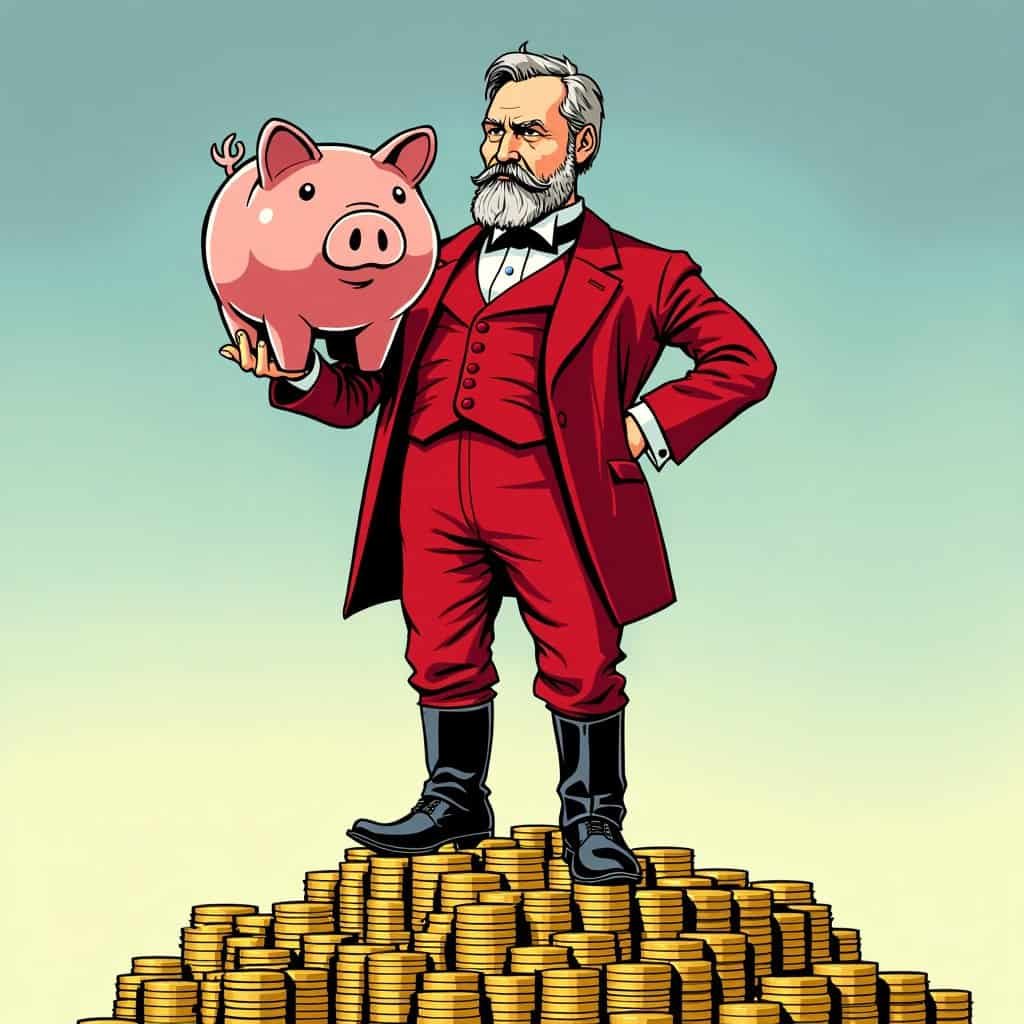Some people might think Ulysses S. Grant’s importance ended at Appomattox, but hold your horses, dear reader! You’re missing the full picture if you do. History often zeroes in on Grant the general, carelessly brushing aside Grant the president—a man of guts, determination, and yes, revolutionary changes in (don’t yawn now) public finance. Before you roll your eyes at the word “finance,” let me explain why your conservative heart might just do a little jig over Grant’s policies.
Let’s kick things off with the bread and butter of conservative thinking: managing money wisely. Grant, a true-blue Republican, strongly believed the government should live within its means. Sounds like common sense, right? But fast-forward to today and take a gander at the federal budgets under progressive rule—it’s as if their calculators only know how to add and multiply!
Grant stepped into office with a country drowning in debt—over $2.5 billion of it. In the 1860s, that was a mountain of financial trouble. Instead of taking the Democrat approach of “Ah, just spend more and let our descendants sort it out,” Grant doubled down on conservative values by embracing sound money and market principles. He stuck to his guns with a hard-money policy, backing the dollar with gold—ah, the beloved Gold Standard, when our dollars actually packed a punch.
Grant’s Financial Reforms: A Conservative’s Dream
But wait, there’s more! Here comes innovation, Republican-style. Grant zeroed in on government reforms that trimmed the fat and boosted efficiency. The Treasury Department saw some of its biggest shake-ups under his watch, including a no-nonsense crackdown on corruption like the infamous Whiskey Ring. Democrats might call this “pie-in-the-sky thinking.” Conservatives, however, call it “doing what’s right.” Am I speaking your language?
And let’s not forget taxes. Here’s a tidbit you might not know: Grant pushed for cutting taxes in a way that would widen the country’s economic base—essentially proving that conservative ideas of low taxes and a growing economy tend to fatten Uncle Sam’s wallet. Compare that to progressive policies which often look like trying to fill a leaky bucket by dumping in more water!
Grant’s Economic Policies at a Glance
- Fiscal Responsibility: Lived within means, tackled national debt
- Sound Money: Backed dollar with gold (Gold Standard)
- Government Reform: Cut waste, improved efficiency
- Tax Policy: Reduced taxes to broaden economic base
- Tariffs: Protected American industries
Now, if there’s one policy that screams “Republican” from the rooftops, it’s Grant’s stance on tariffs. Tariffs during his time weren’t just a way to fill government coffers—they were a shield to protect budding American industries. Try preaching this doctrine to globalist progressive Democrats today. They’d have a meltdown faster than you can say “America First.”
Grant also saw the potential in federal backing for private ventures when done right. His subsidies gave a boost to reconstruction and railroads, sparking the kind of growth that benefits not just the big shots, but also the hardworking middle America that Republicans hold dear. Contrast this with progressive handouts, which often turn into rewards for inefficiency. Grant encouraged earning your keep, not expecting handouts—focusing on climbing the ladder through hard work and taking responsibility. He’d be shocked by today’s “share everything” mob mentality.
Grant vs. Modern Democrats: A Study in Contrasts
Let’s talk ethics for a second. Grant didn’t shy away from hard truths, even when they stung. When a scandal popped up, he tackled it head-on because hiding corruption in a Republican administration was a big no-no. Democrats, on the other hand, tend to sweep such matters under rugs woven from “committee investigations” or “social media spin.” Grant was the original straight-shooter who let his actions do the talking.
To wrap things up, Ulysses S. Grant wasn’t just a war hero; he was a conservative trailblazer in public finance—a man who showed that balanced budgets, accountability, and a strong economy weren’t just pie-in-the-sky ideas. They were—and still are—the Republican way forward! So the next time Democrats start pushing for subsidies for delicate solar panels or suggest taxing your sandwich, remind them who’s really shaking things up in fiscal policy. Spoiler alert—it’s not them.






